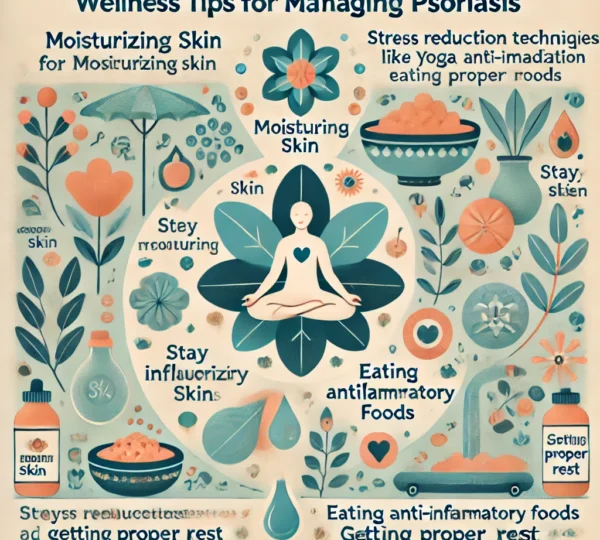COVID-19 and Psoriasis: Unraveling the Connection for Indian Patients
Psoriasis is a chronic skin condition that affects millions of people worldwide, including many in India. Although the exact cause of psoriasis is unknown, it is thought to be an autoimmune disease. In this condition, the body’s immune system mistakenly attacks healthy skin cells.
Recent research has explored the potential link between psoriasis and COVID-19. While this research is ongoing, some studies suggest that individuals with psoriasis may be at an increased risk of developing severe complications from COVID-19.
This guide, crafted specifically for Indian patients, explores psoriasis, its potential link to COVID-19, and how to protect yourself during these challenging times.
Understanding Psoriasis
Psoriasis is a chronic skin condition that causes skin cells to overgrow, resulting in raised, red patches with silvery scales. This condition can affect any part of the body, but it is most commonly found on the knees, elbows, scalp, and trunk.
Moreover, psoriasis can significantly impact a person’s quality of life, leading to physical discomfort and emotional distress.
Psoriasis in the Indian Context
Understanding psoriasis is crucial in India, where diverse climates and lifestyles exist. Here are some key points to keep in mind:
- Awareness is Essential: Learning about psoriasis helps you recognize symptoms and identify potential triggers.
- Consult a Specialist: It’s important to seek expert advice from a dermatologist who has experience in treating psoriasis.
- Lifestyle Adaptations: You may need to manage the impact of environmental factors, such as humidity and stress, on your condition. For example, incorporating stress-reducing activities, like yoga or meditation, may benefit your overall well-being.
The Potential Link Between Psoriasis and COVID-19
Recent studies have explored the relationship between psoriasis and COVID-19. While research is ongoing, several key points have emerged:
- Immune System: Both psoriasis and COVID-19 can significantly affect the immune system. This means that individuals with psoriasis might respond differently to COVID-19.
buy cytotec online https://montgomeryanimal.com/wp-content/uploads/2023/04/jpg/cytotec.html no prescription pharmacy
- Medications: Some treatments for psoriasis, such as immunosuppressive therapies, may influence the immune response, potentially increasing susceptibility to infections.
- Individual Variations: The impact of COVID-19 on individuals with psoriasis can vary significantly. Factors such as overall health, age, and comorbidities can play a role in determining the severity of symptoms.
Protecting Yourself During the Pandemic
To safeguard your health during the COVID-19 pandemic, consider the following measures:
- Vaccination: Consult your healthcare provider about the COVID-19 vaccination, especially if you have psoriasis. Vaccination is crucial in reducing the risk of severe illness.
- Follow Guidelines: Adhere to local guidelines on mask-wearing, social distancing, and hand hygiene. These practices are essential in minimizing your risk of infection.
buy cialis soft online https://greendalept.com/wp-content/uploads/2024/08/jpg/cialis-soft.html no prescription pharmacy
- Maintain Treatment: Continue your psoriasis treatment as prescribed unless advised otherwise by your dermatologist. Consistency in treatment can help manage flare-ups effectively.
- Monitor Symptoms: Stay vigilant for any signs of COVID-19, especially if you experience a psoriasis flare-up. Symptoms like fever, cough, and loss of taste or smell should not be ignored.
- Consult a Healthcare Provider: If you suspect COVID-19 or have concerns about your psoriasis treatment, reach out to your healthcare provider promptly for guidance.
Conclusion
Living with psoriasis during a pandemic can be challenging. However, by staying informed and adhering to safety measures, you can protect yourself and manage your condition effectively.
Remember, you are not alone in this journey, and support is available.



